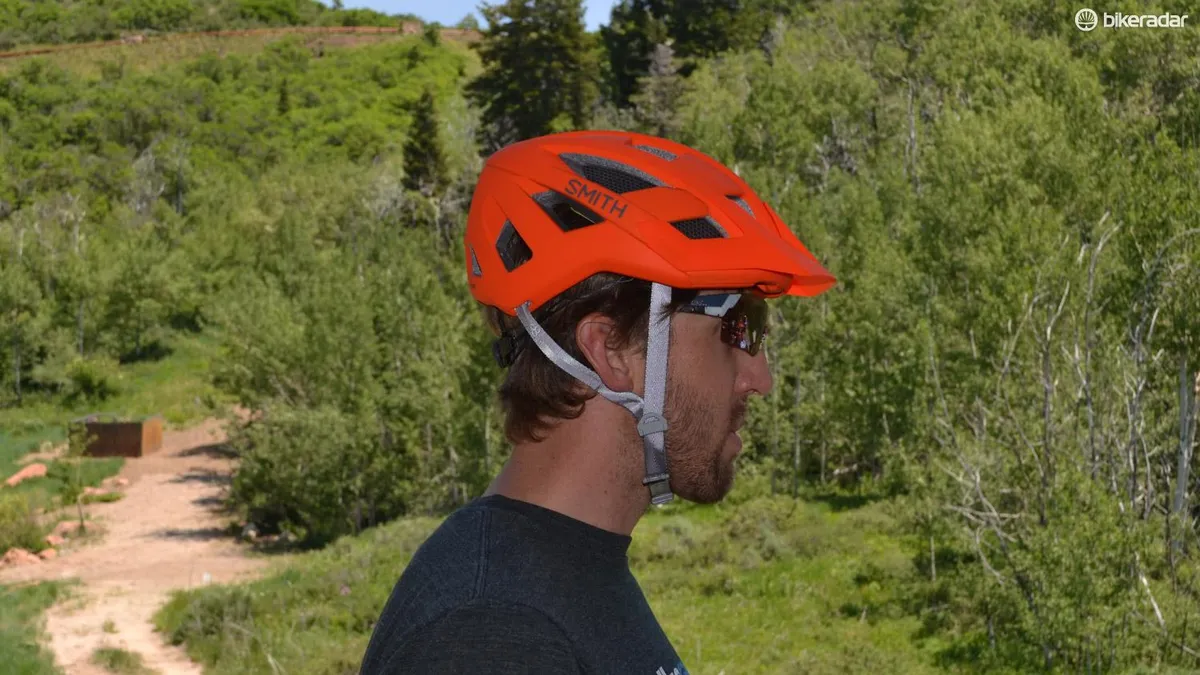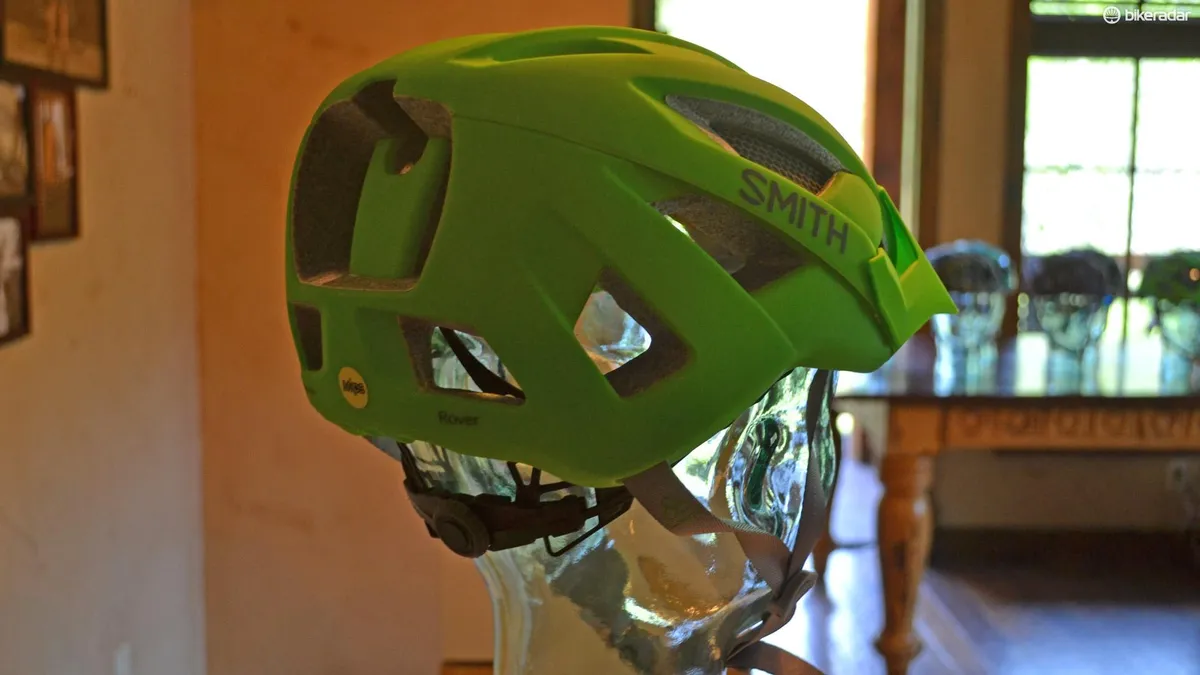Smith's Rover helmet is aimed at the can't-get-enough trail rider, with a fantastic design and the colors and protection to match.
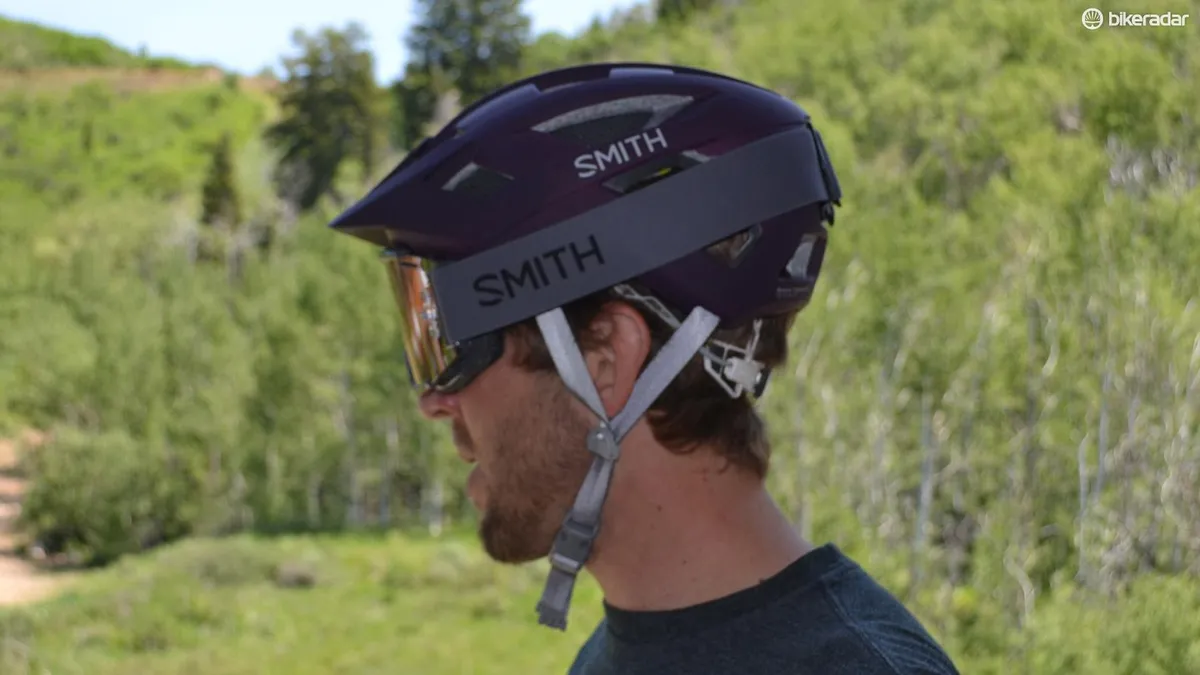
Smith Rover spec overview
- Lightweight Aerocore In-Mold Construction
- Zonal ventilated protection featuring patented Koroyd material (a tubular core structure that absorbs impact energy)
- MIPS system available in all colors
- VaporFit Adjustable Fit System
- 20 optimized vents
- X-Static with Reactive Cooling Performance lining
- Ultra-Light single layer webbing
- AirEvac ventilation
- Integrated visor
Smith Rover is for the everyday rider
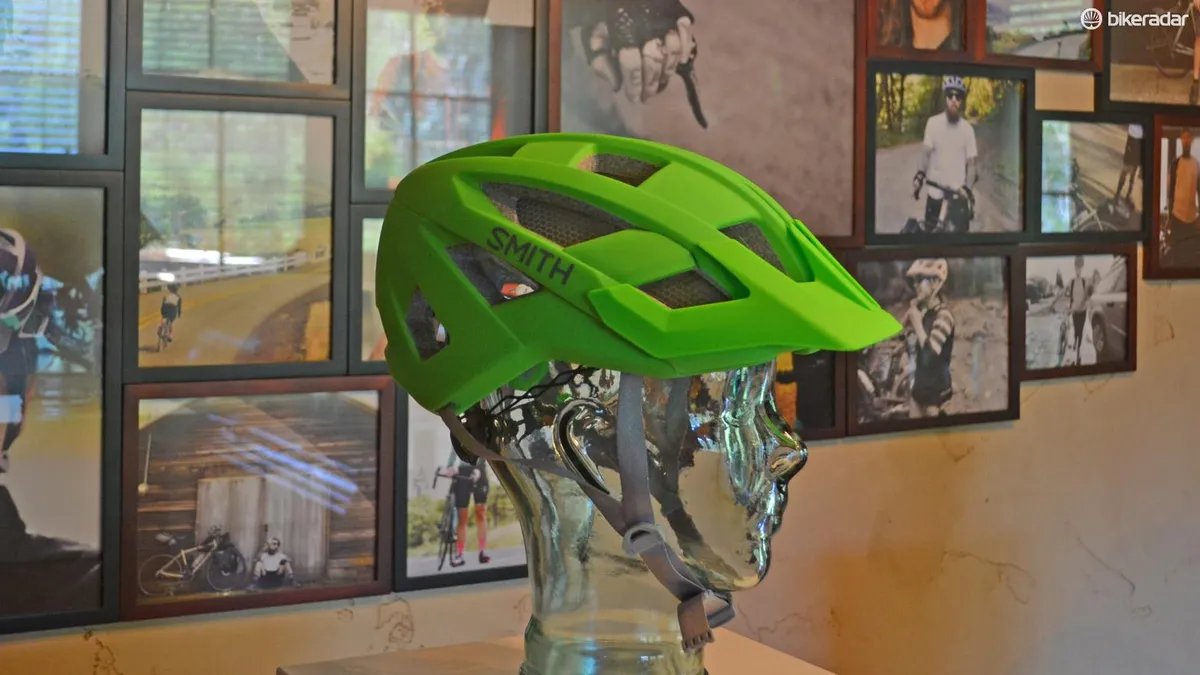
Smith's Forefront helmet has won plenty of awards and won over plenty of mountain bikers with its outstanding blend of protection, style, and integration for sunglasses, goggles, lights, and cameras. It was clear to the folks at Smith that they had the high-end nailed, but what they didn't have was a helmet for the common, everyday rider. This is where the Rover (and Route for the road) fit in.
Coming in at a lower price point ($180 vs $260 for the Forefront), the Rover is still flush with most of Smith's protection and features. To keep the low-profile, Koroyd is featured in the sides of the helmet over strategic impact areas. Smith's VaporFit adjustment fit system is thankfully carried over from their higher-priced lids, as is the AirEvac ventilation system. MIPS is an option as well, and is available in all colors.
The more expensive Forefront has more vents (21 vs. 18), more Koroyd material, an integrated skeletal structure, and an integrated camera or light mount. Plus, lighter materials are used throughout, and the visor is adjustable and removable.
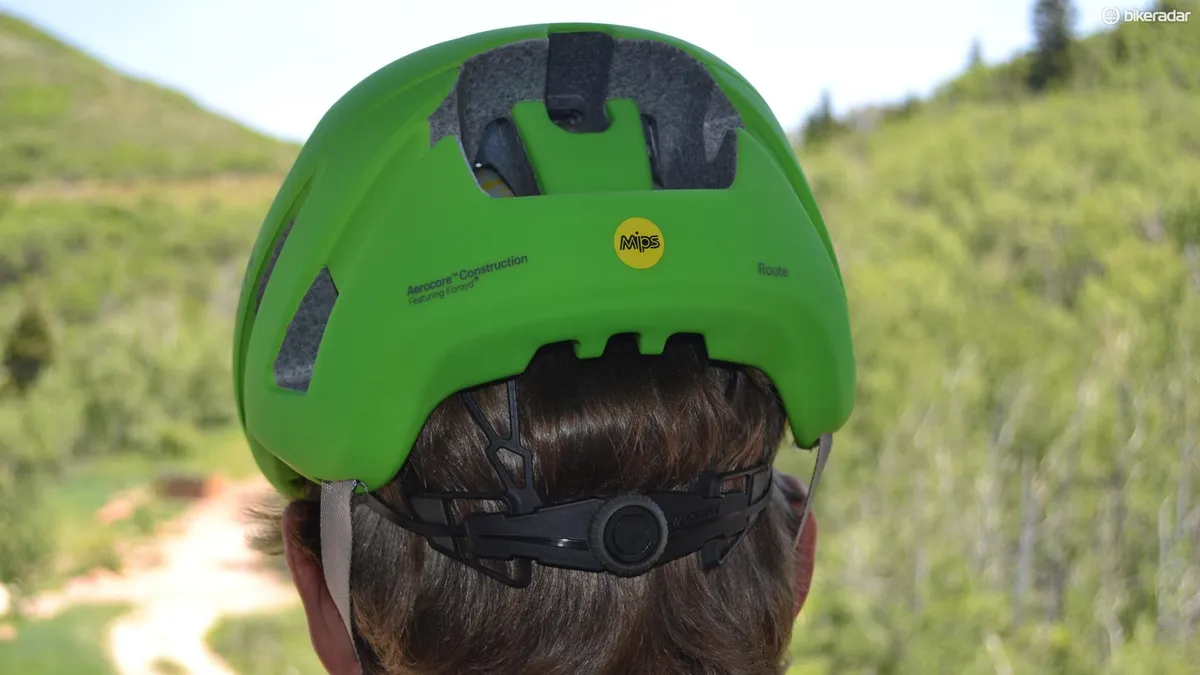
The road-oriented Route has less rear coverage but still employs smith's VaporFit adjustable fit system
Smith Rover helmet first ride impressions
Immediately upon trying on the new Rover helmet and cinching down the VaporFit dial out back, it was apparent that this helmet fitted my head well. The pads gripped nicely, the adjustments felt secure, the straps were simple to use and there were no hot spots or odd padding placements.
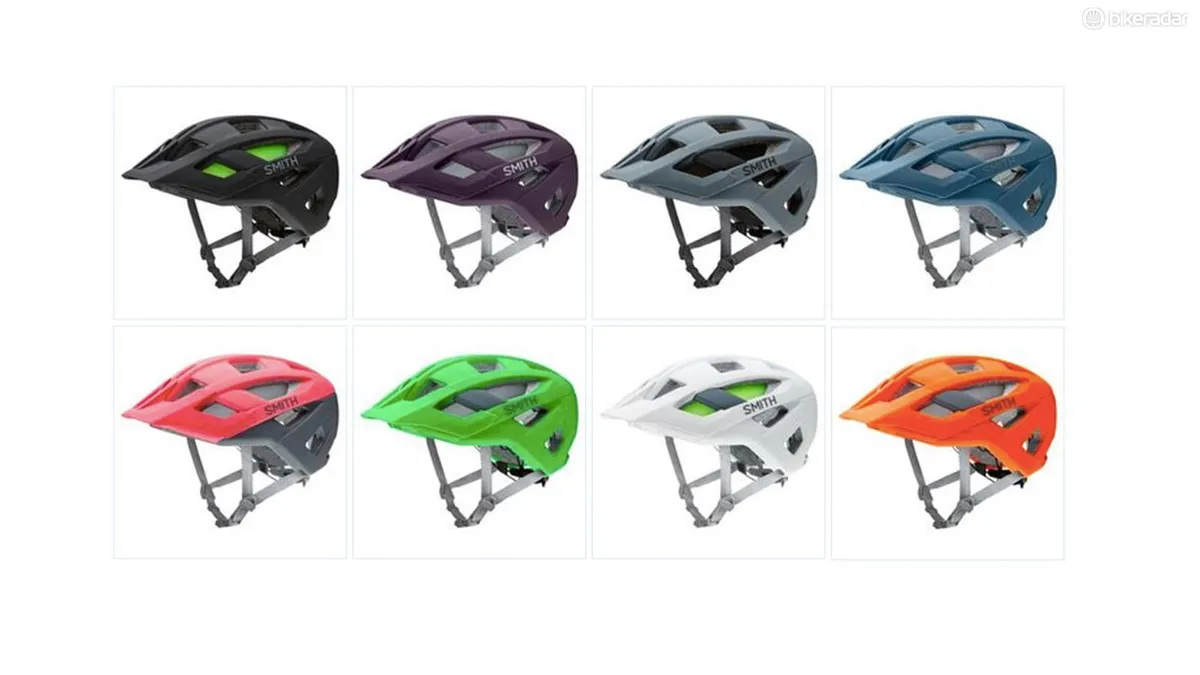
Once riding, the ventilation was noticeable. Unlike the more Koroyd-clad, road-oriented Overtake, I could feel air flowing through the helmet. This is likely due to the 18 large vents being paired with only two sections of Koroyd on either side of the lid. Smith chose these locations for the patented protection as their research has shown that most impacts happen on the side of the helmet, not the top, or the rear.
The visor is fixed and more than once I found myself trying to push it up out of the way, especially on climbs when humped over the bars. That said, while actually descending on trail, I never felt the need to adjust the visor's placement. This was with sunglasses, I've yet to go full enduro with a goggle set up.
Smith Rover helmet price
$180 MIPS / $150 regular — UK and AU pricing not yet announced

Smith Rover vs the competition
Smith's new Rover occupies a well-rounded field of helmets. All of the major helmet brands offer MIPS, which is a good thing. What Smith brings is the use of Koroyd. The Koroyd allows Smith to build helmets with a much smaller profile, resulting in less bulk and weight.
Early verdict
The Rover can hold its own due to the outstanding protection offered by the Koroyd material as well as the MIPS system. Additionally, it's crystal clear that the designers at Smith are paying attention as the matte colors and designs are up-to-date and gorgeous. Plus, if you ride with Smith's sunglasses or goggles, the compatibility between eyewear and helmet is second-to-none. Finally, I love the fact Smith offers a lower price helmet and hasn't skimp on style or features.

